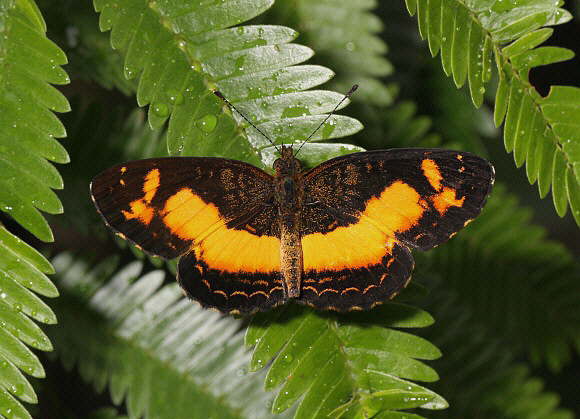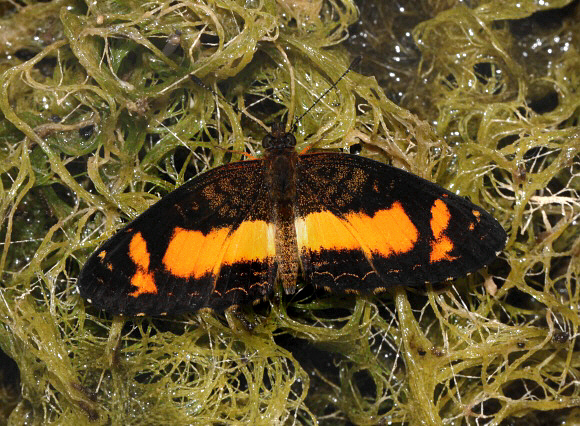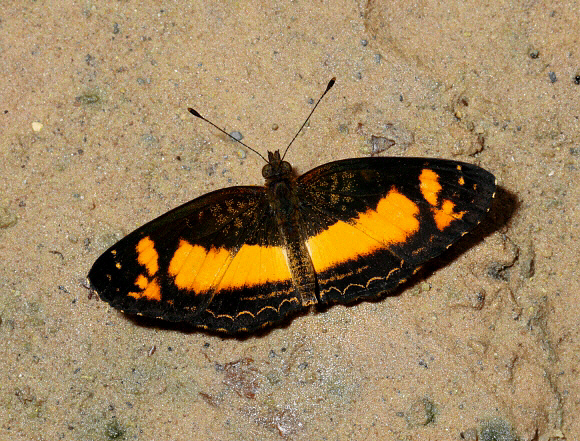
Introduction
The tribe Melitaeini is of worldwide distribution. It includes the Crescents and Checkerspots, and also many familiar European species such as the Marsh, Glanville, Spotted and Heath Fritillaries.
The genus Telenassa is closely allied to Anthanassa, and shares similar patterns and colours – some species being quite plain, with just a few thin wavy submarginal lines on the hindwings, while others are prettily marked with spots and / or bands of white, cream or bright orange. The 16 Anthanassa species are primarily Central American in distribution, with only a few species extending their range south of the equator. The 8 known species of Telenassa however are entirely South American in distribution.
Telenassa teletusa is a widespread and common species in the Andean foothills, and in southern Amazonia. There are 2 subspecies – teletusa teletusa is found in south-east Peru and Bolivia. The illustrated subspecies teletusa burchelli is found in north-east Peru, eastern Ecuador, ad the upper Amazon basin of Brazil.

Habitats
This species is found in disturbed areas of rainforest and cloudforest, including roadsides, glades and riverbanks, at altitudes between about 200-1500m.
Lifecycle
To be completed.
Adult behaviour
Males are commonly seen amidst aggregations of Tegosa, Dagon, Tegosa and Ortilia species, which often swarm at urine-tainted sandy patches, and other mineral-rich sources of moisture on hot sunny days. The butterflies normally feed and bask with the wings fully outspread, even on the hottest days.

